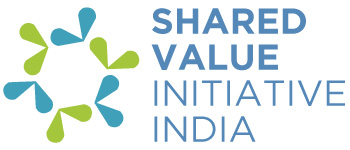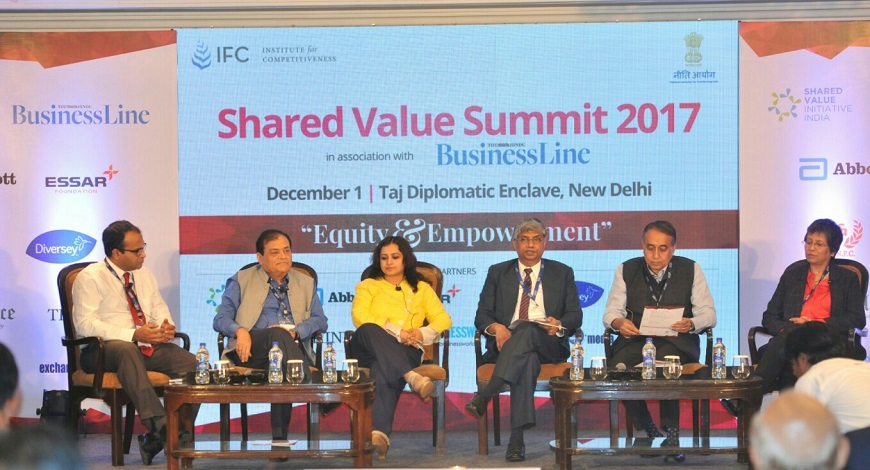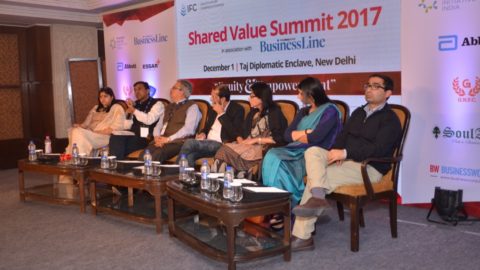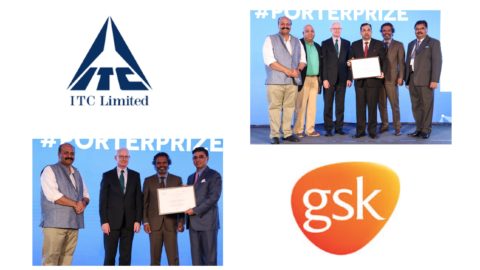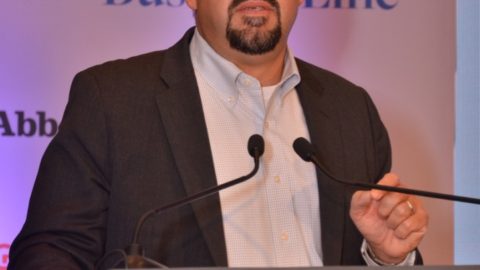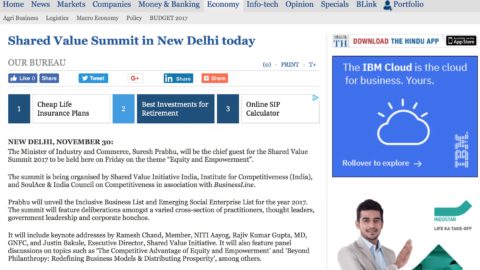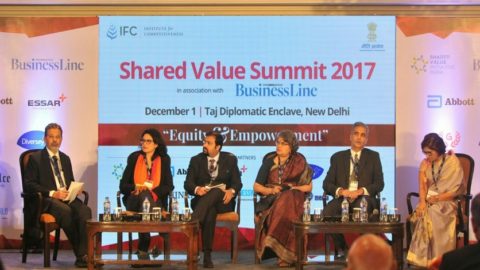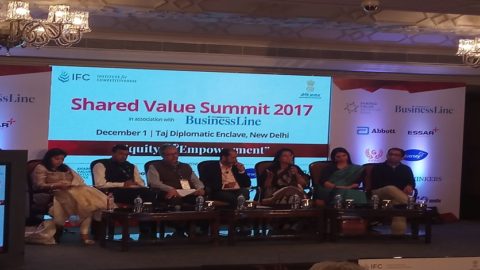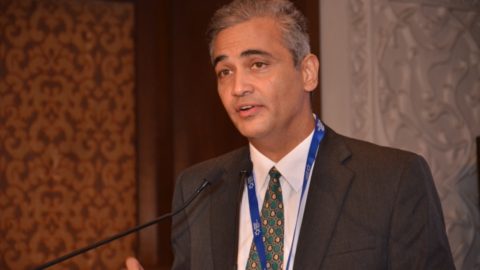“We’re a country of 1.2 billion, and there are 103 million elderly, and my organization is trying to work with the bulk of the elderly in the country,”Mathew Cherian, CEO, HelpAge India
At the Shared Value Summit 2017, co-organized by Institute for Competitiveness and NITI Aayog, there was a panel discussion on the competitive advantage of equity and empowerment, moderated by Raghuvir Srinivasan, Senior Associate Editor, Hindu Business Line. “Shared value is often compared with CSR but it is not the same. The telecom revolution is a great example where financial inclusion is pushing the social agenda forward. The panellists here will discuss their experience with equity and empowerment with respect to shared value”
“When we talk about equity, we talk about gender, caste, race and something which helps in the perpetuates business. When you have different rules for different people, society is hindered. It’s when you have the same set of rules being followed by everybody, there is genuine equity which helps in the perpetuation of any business. When I talk about empowerment, it’s almost as if someone a person in a superior position is talking about empowering those who don’t have power. Digitization and technology actually help in bringing about equity and empowerment“, said Sonu Bhasin, Author and Founder, Families and Business. She also added, “There should be equal opportunity for ambition for everybody”.
Mathew Cherian, CEO, HelpAge India said, “We’re a country of 1.2 billion, and there are 103 million elderly, and my organization is trying to work with the bulk of the elderly in the country. There was an agrarian crisis which has been looming for the last 7 years, and we worked in a place called Vidharbha, where many farmers committed suicide and their widows had to take up farming. HelpAge got Bombay Stock Exchange and HSBC to support us in our endeavour, as they believed in gender empowerment.” He also added, “The two big reasons for the death of the farmers have been the prices in the Chicago Stock Exchange and BT Cotton. Farm waivers did not really go to the women who really needed it. We believe in making people stand on their feet, and we have helped 30,000 women become farmers. One of the big problems in India is discrimination. The responsibility in all of us this room is, whether we can build responsibility in our children before they talk about corporate social responsibility, it’s about individual responsibility.”
“We are a platform, not a judge or a censor, where we publish without any fear. I want to publish it irrespective of whether it’s left, right, centric or whatever. Empowerment is deeply linked to access to information and opportunity. As a publisher, my job is not to stifle any voice. It is empowerment in a lot of ways “, said Milee Ashwarya, Editor-in-Chief- CBD, Penguin Random House India, speaking about the role of publishing in empowerment and equity. “Books are very important in changing lives, and I see a hope in how we are trying to publish good content. There are ways of providing information and giving opportunities through publishing, it makes others see what opportunities and successes other people have, and gets them motivated. We need to address why women aren’t getting opportunities in states other than Haryana for sports. Books can a major tool for empowerment, and giving a voice to those who don’t have one”.
Mahendra Singh, Group CEO, Dalmia Bharat, said, “We have to give the best to our people and society. Our two mantras are- be happy and make others happy, as well as be good, and do good. Our philosophy is that clean and green is profitable and sustainable. In last 10 years, we have grown about CAGR, 24% on capacity and 19% on profitability. We decided to give back to societies where to operate to enhance the livelihood of the people. We join hands with the government and beneficiaries so the benefits of the government schemes can reach the society. There has to be a failure for innovations to come in, so we started celebrating failure”. He also added, “This all has resulted in giving me the pride to say that this is one of the most profitable, sustainable cement companies which has the lowest carbon footprint. Our company has committed to using 100% renewable energy by 2030. We are now able to aim to doubling our capacity from 25 million tons to 50 million tons. We have made our objective to make ourselves one of the most respected corporates across the globe. Shareholder value has gone up by 20%, through our focus on equity and empowerment”.
Hisham Mundol, Executive Director, Child Protection, CIFF, said, “What I want to tell you about the equity and empowerment is not the human case for it, but the political, economic and corporate case for it. Over the past few years, Bangladesh has been doing really well on human development indicators, because firstly the government got out of the way, and secondly, they let girls stay in schools. Letting girls stay till secondary school is the single biggest multiplier in any economy.” Mundol also added, “We have the largest gap between the age of the cabinet and the median age of the population. To get the vote of the new female, it is important to keep them in school and get educated. If child labour moved to 0%, the industry or agriculture will not come to a halt. Think about the premium you could charge by putting a child-labour free logo on products. It would definitely be more profitable”.
The summit was covered by BW Businessworld on December 4, 2017.
